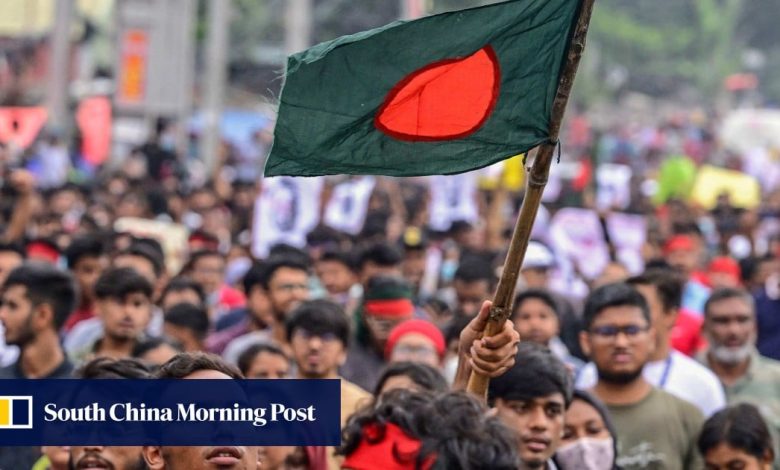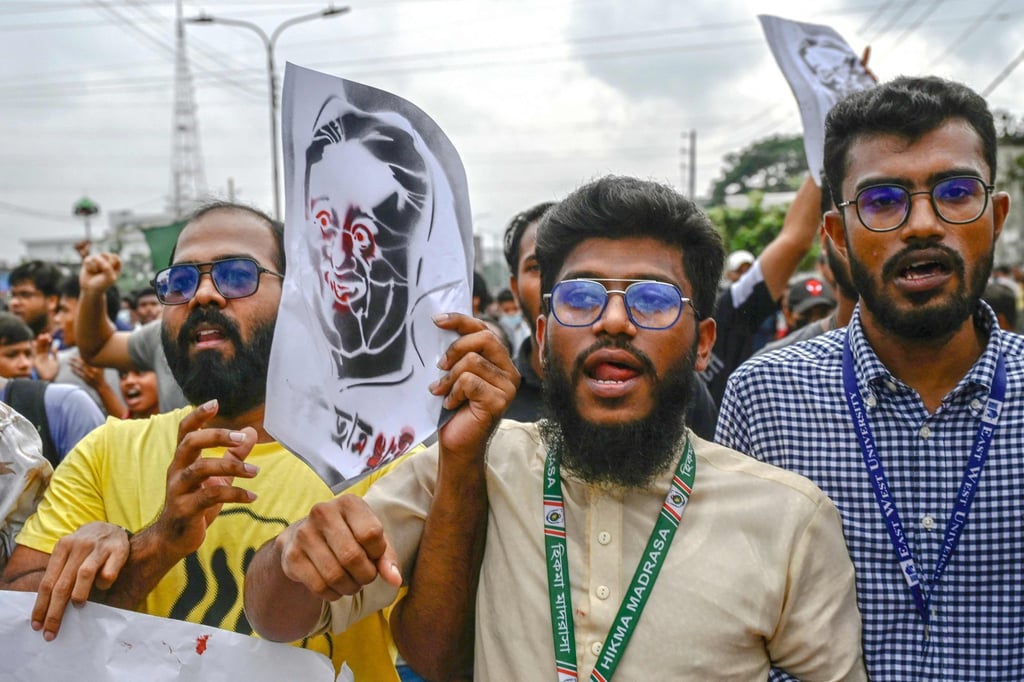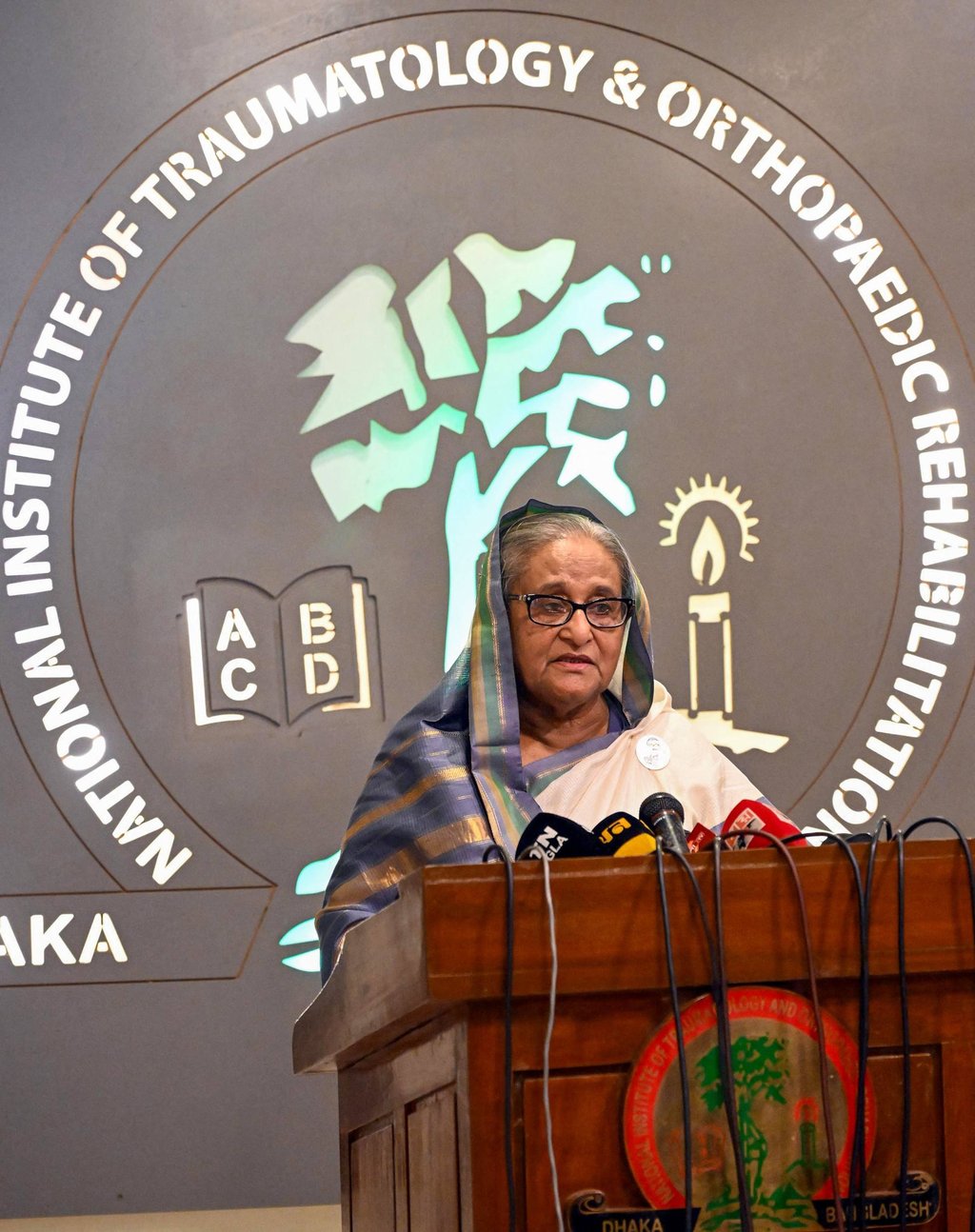Bangladesh students call for nationwide civil disobedience, halt to remittances

“This includes non-payment of taxes and utility bills, strikes by government workers, and a halt to overseas remittance payments through banks,” the group’s Asif Mahmud told reporters.
Students are demanding a public apology from Hasina for last month’s violence and the dismissal of several of her ministers.

They have also insisted that the government reopens schools and universities around the country, all of which were closed at the height of the unrest.
Crowds on the street have gone further, insisting Hasina leave office altogether.
“She must go because we don’t need this authoritarian government,” Nijhum Yasmin, 20, told reporters from one of many protests staged around the capital Dhaka on Saturday. “Did we liberate the country to see our brothers and sisters shot dead by this regime?”
The non-cooperation strategy deliberately evokes a historical civil disobedience campaign during Bangladesh’s 1971 liberation war against Pakistan.
That earlier movement was spearheaded by Hasina’s father Sheikh Mujibur Rahman, the country’s independence leader, and is remembered by Bangladeshis as a part of a proud battle against tyranny.
“Now the tables have turned,” said Illinois State University politics professor Ali Riaz.
“The regime’s foundation has been shaken, the aura of invincibility has disappeared,” he added. “The question is whether Hasina is ready to look for an exit or fight to the last.”
“She is ready to sit with them. She does not want conflict any more,” he added.
Mahmud told reporters that students had rejected the overture.

Hasina, 76, has ruled Bangladesh since 2009 and won her fourth consecutive election in January after a vote without genuine opposition.
Her government is accused by rights groups of misusing state institutions to entrench its hold on power and stamp out dissent, including the extrajudicial killing of opposition activists.
Demonstrations began in early July over the reintroduction of a quota scheme – since scaled back by Bangladesh’s top court – that reserved more than half of all government jobs for certain groups.
With around 18 million young Bangladeshis out of work, according to government figures, the move upset graduates facing an acute employment crisis.
The protests had remained largely peaceful until attacks on demonstrators by police and pro-government student groups.
Hasina’s government eventually imposed a nationwide curfew, deployed troops, and shut down the nation’s mobile internet network for 11 days to restore order.
Home Minister Asaduzzaman Khan told reporters last weekend that security forces had operated with restraint but were “forced to open fire” to defend government buildings.
At least 32 children were among those killed last month, the United Nations said on Friday.





